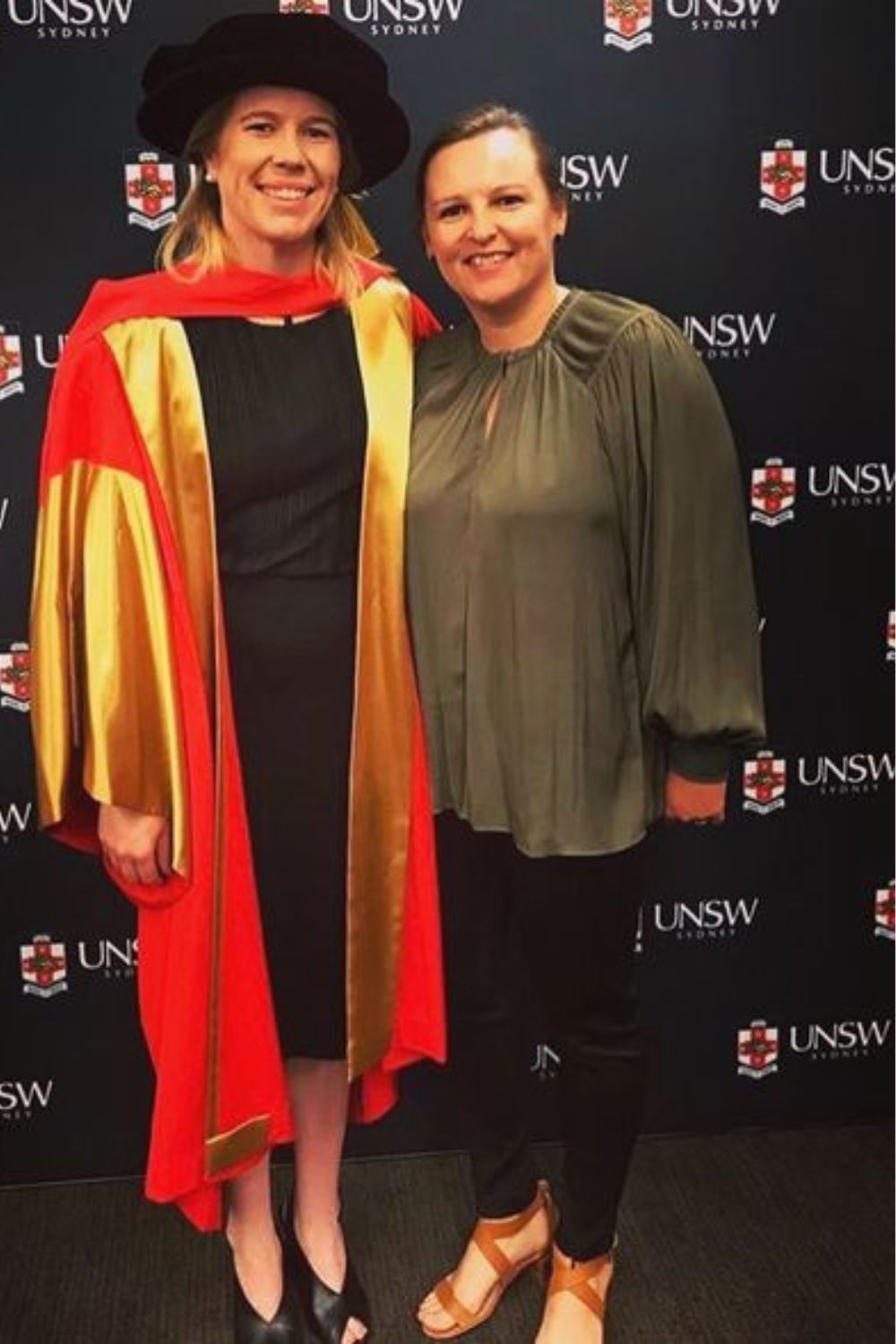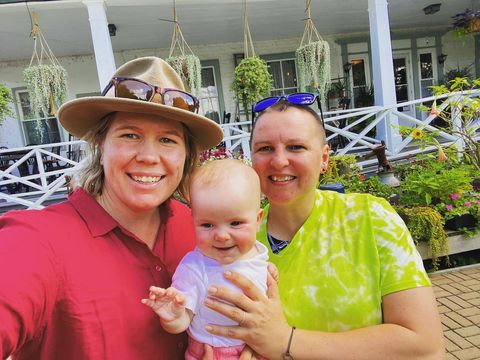Alex Blackwell’s partner, Lynsey Askew, had a successful career in cricket for England at the international level.
Alex Blackwell and Lynsey Askew have been openly gay and married since 2015.
They have two children together and are both active in the cricket community. Moreover, they promote equality and inclusion and are role models for LGBTQ+ people.

Alex Blackwell was a professional cricketer who played for New South Wales and Australia for 18 years.
She was a prolific batsman and bowler and a key member of the Australian team that won the 2005 Women’s Cricket World Cup and the 2010 ICC Women’s World Twenty20.
She retired from cricket in 2019 but leaves a legacy of success and achievement.
Alex Blackwell Partner Lynsey Askew: Married Life And Kids
The former cricketer Lynsey Askew was born on 3 September 1986 in Bromley, Greater London.
She showed an early interest in cricket, and at the age of 9, she co-founded a ladies’ team at Hayes Cricket Club with some friends.
She attended Hayes School, where she was part of the team that won the 2002 National Under-15 Championship.

Askew went on to have a successful career in cricket, playing for England at the international level.
She married former Australian cricketer Alex Blackwell in 2015.
Daughter Of Alex & Lysney
Alex and Lynsey welcomed their daughter, Edith Carol Blackwell (Edie), on February 16, 2022.
Edie was born at 39 weeks, weighing 3.2kg and measuring 47cm. Her mummas are absolutely besotted with her.
According to their recent Instagram post, they celebrated Edie’s 1st birthday on February 16, 2023.
The post featured a photo of Edie blowing out her birthday candles, and the caption read, “Happy 1st birthday to our darling Edie! We love you more than words can say.”
Edie is a beautiful and healthy baby who clearly receives much love from her mummas.
Alex Blackwell Step Towards Empowering LGBTQ Inclusivity In Sports
During her career, Alex Blackwell achieved remarkable success as a cricketer, and she was proud of captaining Australia to victory in the 2010 T20 World Cup final against New Zealand.
Despite her on-field achievements, Blackwell also faced the less inclusive aspects of cricket, with homophobia directed towards her sexuality not being fully accepted within the sport.
In 2013, Blackwell decided to come out publicly as gay, becoming the first female international cricketer to do so.
She saw herself as a role model and an advocate for LGBTQ+ rights, hoping to create a safe and celebrated space for young gay people in the sporting community.
After retiring from cricket, Blackwell continues to advocate for LGBTQ+ inclusion in sports.
She has engaged in commentary and writing and is a patron for Pride in Sport, working to promote inclusivity at all levels of sports in Australia.
Blackwell acknowledges her privileges as a white, cis-gendered woman and believes that using her platform to stand up for others is crucial in creating a more accepting and equal society.
Alex Shed Light On Struggle In Sports As A Homosex*al
In a 2020 interview with Guardian Australia, former Australia cricket captain Alex Blackwell shed light on female players’ challenges in cricket or football.
These women are often assumed to be gay, and Blackwell has also discussed her experiences, revealing that she has felt profiled as a predator because of her sexuality.
She came out as gay in 2013, becoming the first female international cricketer to do so, and has since been working to change negative perceptions.
Monash University conducted the first quantitative research, which found that nearly 90% of female athletes believe that most people assume they are lesbians if they play sports like rugby, cricket, football, or AFL.
However, the actual percentage of lesbians playing these sports is around 25%, only.
While Blackwell and others have been vocal about stamping out homophobia. Many straight female athletes also avoid the subject due to concerns of labeling as homophobic.
She believes that understanding each other’s concerns and experiences is crucial for creating a welcoming and inclusive environment for all athletes, regardless of their sexuality.
